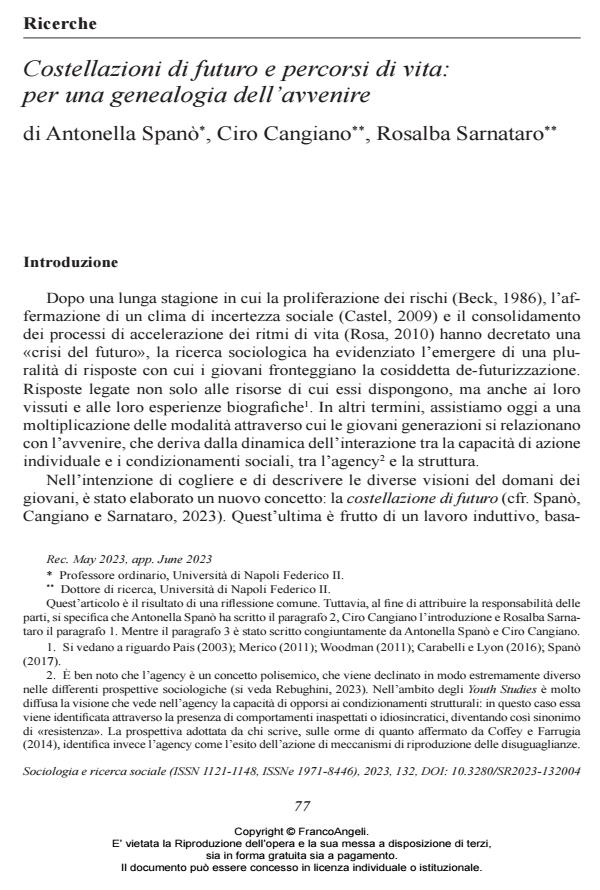Costellazioni di futuro e percorsi di vita: per una genealogia dell’avvenire
Journal title SOCIOLOGIA E RICERCA SOCIALE
Author/s Antonella Spanò, Ciro Cangiano, Rosalba Sarnataro
Publishing Year 2024 Issue 2023/132
Language Italian Pages 27 P. 77-106 File size 470 KB
DOI 10.3280/SR2023-132004
DOI is like a bar code for intellectual property: to have more infomation
click here
Below, you can see the article first page
If you want to buy this article in PDF format, you can do it, following the instructions to buy download credits

FrancoAngeli is member of Publishers International Linking Association, Inc (PILA), a not-for-profit association which run the CrossRef service enabling links to and from online scholarly content.
A. Spanò, C. Cangiano, R. Sarnataro, Constellations of the future and life paths: for a genealogy of the future (Costellazioni di futuro e percorsi di vita: per una genealogia dell’avvenire) The processes of social change that have affected Western societies since the 1980s have profoundly changed the idea of the future, leading to what has been called the «crisis of the future». Many studies have shown that there is a variety of answers to the uncertainty arising from the end of the idea of the future of modernity. This contribution, based on the analysis of 40 narrative interviews with young entrepreneurs, adopting the bourdieusian scheme is aimed at identifying the factors, experiences and biographical paths behind the different visions of the future that have emerged from the research. The contribution highlights how the action of the different reproduction mechanisms of inequality is behind the various images of the future.
- La forza dei luoghi. Traiettorie biografiche e orizzonti di attesa di giovani imprenditori del Nord e del Mezzogiorno Ciro Cangiano, in Cambio. Rivista sulle Trasformazioni Sociali /2025 pp.165
DOI: 10.36253/cambio-16043
Antonella Spanò, Ciro Cangiano, Rosalba Sarnataro, Costellazioni di futuro e percorsi di vita: per una genealogia dell’avvenire in "SOCIOLOGIA E RICERCA SOCIALE " 132/2023, pp 77-106, DOI: 10.3280/SR2023-132004